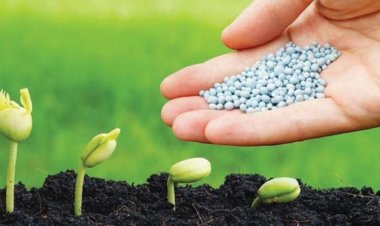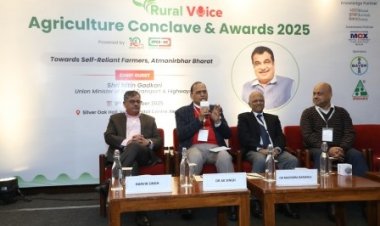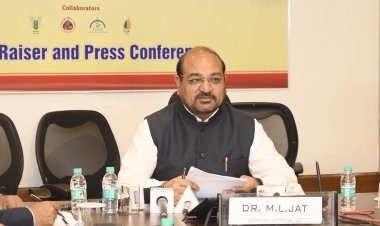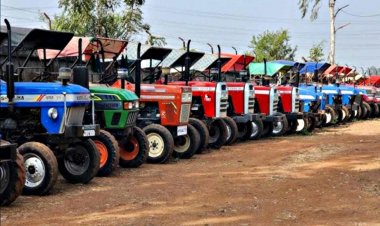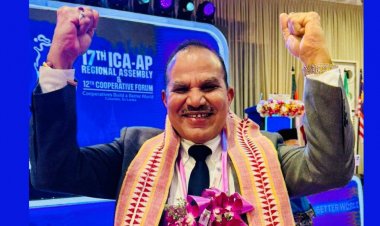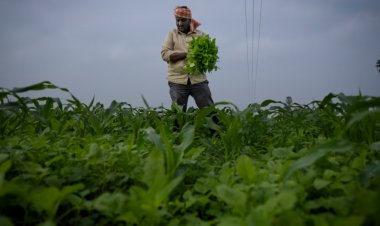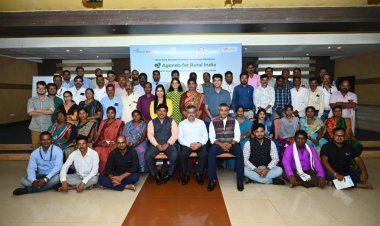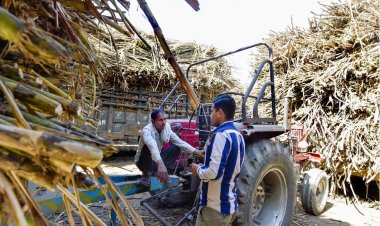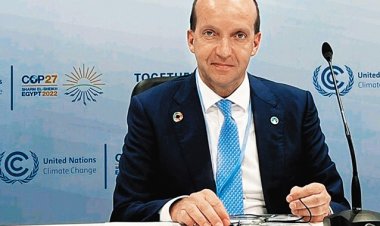Natural Farming is full of advantages but shift needs to be made in a phased manner
A national webinar meeting on ‘Natural Farming in India: Holistic Benefits: A Way Forward’ was organized by the Academy of Grassroots Studies and Research of India (AGRASRI), an ICSSR grant-in-aid research institute, Tirupati, Andhra Pradesh, in association with the Society for Hunger Elimination (SHE). It was aimed at formulating a model for future sustainable agriculture policies to build on by the Centre and State governments.

A national webinar meeting on ‘Natural Farming in India: Holistic Benefits: A Way Forward’ was organized by the Academy of Grassroots Studies and Research of India (AGRASRI), an ICSSR grant-in-aid research institute, Tirupati, Andhra Pradesh, in association with the Society for Hunger Elimination (SHE).
Prof. Prabhakar Tamboli, Adjunct Professor at Maryland University and former agriculture scientist, World Bank, was the chief guest. Natural Farming (NF) has many dimensions/definitions and components, including no till, any use of chemical fertilizers and pesticides, he said.
Tamboli said that the Government of India started giving subsidies to farmers for urea and farmers started using chemical fertilizers indiscriminately. This created poor soil health, pollution of groundwater and other environmental problems. It was then considered proper to find alternate ways of maintaining soil fertility by encouraging the use of more organic matter and reducing or even eliminating the use of chemical fertilizers.
In a clarion call to the policymakers, Tamboli asked them to consider the advice of soil scientists and agronomists and use Integrated Pest Management (IPM) to reduce the use of pesticides by identifying the natural enemy of the bug. He suggested, however, not to take the drastic step of eliminating the use of chemical fertilizers in the country. He pointed out that recommendations for sustainable agriculture development had been made by eminent scientists like Dr Raj Proda, Dr Ratan Lal, Dr MS Swaminathan, Dr Suresh Babu and many others.
Delivering the keynote address, Prof. Suresh Chandra Babu, Head of the Capacity Strengthening at the International Food Policy Research Institute, Washington DC, said that the NF strategies need to explicitly recognize multiple goals in agriculture and in rural areas and encourage the private sector and provide regulatory services for natural farming needs. His recommendations included (i) National Farming Policy at the national level; (ii) Budget provision by the Central and State Governments level and support with funding and investment; (iii) coordination of actors and players on the value chains; and (iv) making NF demand-driven.
Presiding over the meeting, Dr C Kathiresan, Head of the Rural Technology Park at the National Institute of Rural Development and Panchayati Raj (NIRDPR), Hyderabad, stressed the abundant advantages and uses of the NF products for human beings as well as livestock across the globe. He felt that the use of NF products would drastically enhance the life expectancy of the citizens in all respects.
Dr D Sundar Ram, Founder-Director of AGRASRI, was the moderator. He explained the aims and objectives of the webinar meeting on the theme, as a forwarding step in formulating a model for future sustainable agriculture policies to build on by the respective governments at the Centre and of the States.
Dr V Rajagopal, former Director of the Central Plantation and Crops Research Institute (CPCRI), Kasargod, Kerala, said NF had been gaining prominence in recent years to transform the agriculture sector as less damaging to nature but more productive and remunerative to farmers. Explaining the abundant advantages of coconut and allied crops, he said that the coconut tree produces large quantities of big leaves, floral parts are spread across coconut basins to save soil moisture. Coconut husks are buried in the basins since they are rich in potassium and other nutrients. The fodder grass grown in between coconut trees and other intercrops like legumes and weeds enrich soil fertility.
Prof G Sudarsanam of Sri Venkateswara University, Tirupati, clarified the potential advantages of NF crops for safe health and long lives of the citizens, but at the same time cautioned how NF activities were being affected due to the release of polluting water and chemicals nearby. Dr George V Thomas, former Director of CPCRI, felt that NF was aptly suitable to Indian agriculture activities.
Dr Mahi Pal, President of Karpa Foundation, Ghaziabad and former Director at the Ministry of Rural Development, exposed the plight of the farmers’ problems in the cultivation of organic farming with his experience and experiments in the agriculture fields over a period of time. He suggested a road map for diverting farmers from chemical farming to non-chemical farming in a phased manner if the Government was serious about natural farming. And during the period of shift, financial support must be provided by the Government; otherwise, it will be confined to papers.
The supply side of the agricultural department should be strengthened by providing adequate scientists and support staff in different institutions, Dr Mahi Pal said. Marketing facilities should be created in a decentralized manner so that farmers do not have to cover a long distance to the market, he added.
Abhay Kumar Singh, Program Manager at the Centre for Science and Environment (CSE), New Delhi, presented robust evidence out of a recent report on the holistic benefits of organic and natural farming — the ones related to livelihoods, soil health and environment and not just yield. Based on field-level testing and evaluation, Singh argued that NF involved low cost, introducing resilient crops, energy and water efficiency, plant and animal biodiversity, carbon sequestration and climate mitigation. The scientific community and policymakers need to recognize this and act to transform the non-chemical farming initiatives in our country into a mass movement.
Dr K Gangadharam, General-Secretary of the Welfare Organisation for Rural Development (WORD), an NGO at Tirupati, presented a vivid picture of the massive advantages and nutrient values of natural farming products with the practical experiments in his own fields over a period of 15 years.



 Join the RuralVoice whatsapp group
Join the RuralVoice whatsapp group

















